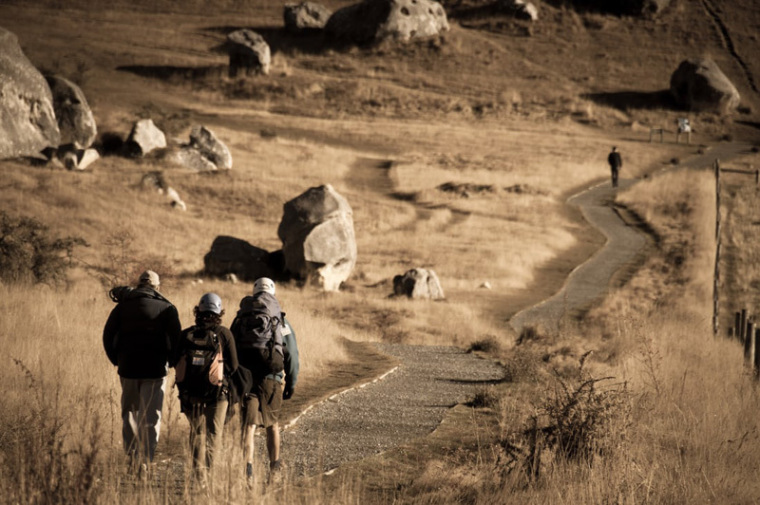
If you are reading this article, it is most likely you are doing so using the Internet and, on your smartphone or laptop. If true, then you are most likely living in a part of the world that is referred to as “the West”, or “the Majority World”. It is to you that I write this article, because it is my belief that for us, following Jesus is harder than ever.
Our brothers and sisters in other parts of the world suffer from very real persecution of their faith—threats of death, war, poverty—that we simply do not face in such a stark way. However, it is true that we face our own kinds of challenges that I think are far more subtle.
I wish now to discuss three that I have witnessed, particularly in my work as a Pastor. More specifically, as a Youth Pastor, I come face-to-face with the impact of these obstacles in the lives of the young people I journey with.
But just because I see them with young people does not mean they are their problems alone. If anything, they are problems we all share, subtle in their effects but corrosive nonetheless to a following in the Way of Jesus.
Shallow-ness vs depth
We live in the age of the Internet, with unlimited amounts of information about any given subject literally at our fingertips. Smartphones have changed the way we access, store, and process information.
No longer do we need to map out our drive to that holiday destination—why bother when we have Google maps? At the click of a button, we simply follow the voice prompts, trusting mindlessly that GPS will get us to our desired spot.
Likewise, with faith we extend this same shallow approach. We are more likely to “read” the bible through the verse-of-the-day Youversion bible app than an in-depth bible study. We are more likely to “hear” the bible through a 1-minute video reel in Instagram than hear a sermon preached in real life.
In a world that is vying for our attention, and pandering to our short attention spans, Scripture reminds us that with God he simply says “be still, and know that I am God”. In the constant shallow-ness of our interactions, we have God who desires deep connection and intimacy.
Following Jesus, with depth and not shallow-ness, requires—simply—more of yourself being present to Him. It requires sacrifice of time and resources. How it might look specifically for you will vary: maybe you need to go deeper into friendships? Deeper into the Scriptures? Deeper into your vocation (i.e. mission)?
Distraction vs focus
It goes hand-in-hand with the first point, that our access to information and resulting lack of depth leads to a constancy of distractions. We are, more than ever, distracted people.
We live in a constant flux. Emails and instant messaging mean that tasks are always juggled. We seem to lack knowledge about prioritising what is important and what is not.
I see it all the time amongst believers. We distract ourselves on both the seemingly spiritual and non-spiritual. We wade into wider debates (arguments) that project our supposed beliefs in our secular world. We have in-house fighting of the theological kind (i.e. liberal vs. conservative), or stupid kind (the colour of the drapes in church).
C.S. Lewis, in his book “the Screwtape Letters”, pontificates that it is distraction that the enemy uses to ultimately destroy us. This kind of distraction or “wandering attention” comes in the form of a good book that keeps us from praying to God, from our work, and even from our sleep.
Distractions can cause us to go off on a state of hurry or pause us long enough in a state of nothingness. Distractions are all around us and are unavoidable. The tonic, I think, is focus. Deep focus. A kind of focus that prioritises on the good, the strengths, and the positives.
How might you and I create more focus in our lives following Jesus? It may sound simplistic but prayer is one of the simplest yet profound ways to focus. Jesus himself modelled focus through prayer, withdrawing to be with the Father. Could you do the same?
Comfortability vs challenge
Finally, the last point I want to end with is, I think, a direct result of the first two. That is, the challenges of shallow-ness and distractions ultimately mean that the challenge of Jesus and his Gospel is cushioned by comfortability.
When I was a teenager learning about the Way of Jesus, I was constantly challenged about what that meant. I attended camps and heard speakers who reminded me that following Jesus is a narrow way, and that many would not find it.
If you asked, I could name you at least 10 people I know both globally and locally, who directly impacted me with the challenge of following Jesus. Today, I doubt that many could say the same.
As a result of this we now have a Christianity that very much focuses on comfortability over challenge. Yes, we have the obvious forms of “prosperity Gospel” teachings but we also have the more subtle version that has seeped into our psyche.
The kind that says Jesus will give you a good life, maybe even a nice house and material possessions. It is the kind of faith that demands less of us, less of our participation with the Body of Christ, and less participation with God’s mission to the world.
In the face of this, I wonder what Jesus words to you can challenge: that whoever seeks to gain life would lose it, and whoever would seek to lose their life would gain it.
Following Jesus is hard, and I would argue, harder than ever. But there is hope in a way that stands in direct contrast to a world increasingly becoming shallow, distracted and comfortable.

Caleb Haurua completed his Masters in Applied Theology at Carey Baptist College in 2017. He is the Youth Pastoral Leader at Royal Oak Baptist Church in central Auckland. He loves to ponder, muse, and share thoughts. Hence why he likes the opportunity to write articles like this one. He is especially passionate about the intersection between Church and Society—seeing Christians grow and flourish as participants in God’s ongoing mission to the World.